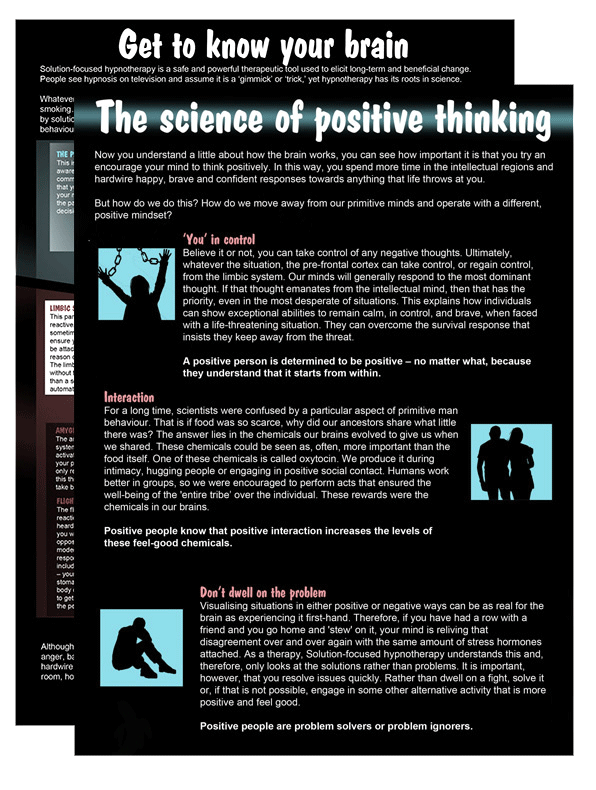So many times are we told that sleep is SO important for us and those old mantras ‘It’ll be alright in the morning’ or ‘Sleep on it!’ are all too familiar. But what IS actually going on during this mysterious phase of our day which require us to place so much emphasis on a ‘good nights’ sleep?’
As a Hypnotherapist, an important part of my role in helping clients get a handle on their lives or achieve their goals is normalising their sleep patterns. In therapy, for many people, this is often the first place I start. If I can get you back to sleeping properly: falling asleep relatively quickly, staying asleep throughout the night and enabling you to get up at the desired time the next day, then one of my most important tasks is done. But why? Why is it so important that we sleep well from a mental wellbeing perspective?
We know more about the brain than ever before and advances in Neuroscience and brain scanning devices have enabled us to open up the black box of sleep and decipher what is actually happening. Sleep as we know is a circadian rhythm, part of our internal body clock. It is controlled by the Suprachiasmatic Nucleus in a region of our ‘primitive’ brain called the Hypothalamus. Changes in light levels and environmental cues stimulate the release of certain brain chemicals known as neurotransmitters which facilitate sleepiness.
But like our waking physiological state, sleep has rhythms and cycles too. Over the course of a night our brain fluctuates from periods of relative inactivity to working with almost a ‘turbo charged energy’. But what is going on in the ‘turbo phase’? Let’s first understand the stages of sleep before we understand the importance of this one, highly crucial stage for mental health:
The brain cycles through four distinct phases during sleep: stages 1, 2, 3, (non rapid eye movement), and 4, rapid eye movement (REM) sleep. REM sleep makes up about 25% of your sleep cycle and first occurs about 70 to 90 minutes after you fall asleep. Because your sleep cycle repeats, you enter REM sleep several times during the night. REM (Rapid Eye Movement) sleep or ‘Paradoxical Sleep’ as some as described it as the body is virtually paralysed, but the brain is incredibly active. During this stage the brain is operating at almost a ‘wakeful’ state of arousal suggesting this phase of sleep has a specific function. This is especially likely, given that REM is essentially ‘rationed’, limited to only around 20% of our total nightly sleep.
It is thought that each REM cycle becomes progressively longer, up to 90-120 minutes. It is for this reason that we need long, uninterrupted periods of sleep.
But what do we think is happening during REM? Brain waves become rapid and it is now widely understood that we replay and process the mental ‘baggage’ from the day in either a clear or a metaphorical way, giving rise of course to dreams. Essentially it is thought that we move stressful memories from our limbic system (Amygdala, Hippocampus, Hypothalamus) into the intellectual mainframe of our brain. Extracting memories, rationalising and resolving decisions. Allowing us to wake the next day with a sense of resolution to that ‘troublesome issue the day before. If we have insufficient sleep therefore, we have limited capacity for REM and reduced ability to resolve and rectify any stresses and strains from the previous day or come up with creative new solutions to move forward. In the short term, severe sleep deprivation can result in hallucination and paranoia, over a sustained period, sleep deprivation has been linked to higher rates of depression, anxiety, risk-taking behaviour and suicide.
Additionally, we understand that sleep deprivation leads to reduction in decision making ability, learning, memory, problem solving and emotional control. It’s no surprise then that children spend a much greater proportion of their time in REM sleep with babies, interestingly, spending up to 50% in REM suggesting brain growth and learning with new neuronal connections being formed. This is evidenced again by research demonstrating we spend more time in REM after days learning new skills.
Hypnosis has been referred to as the creation of an artificially induced REM state allowing new patterns of thought to be rehearsed without the interruption from the Conscious Critical Faculty. Perhaps it is no surprise then that many of my clients come round from trance reporting they feel much brighter, clearer and able to think straight.
If you’re wanting to understand how you can improve your own sleep without Hypnotherapy you may find the following links useful:
https://www.mentalhealth.org.uk/publications/how-sleep-better
http://www.nhs.uk/Livewell/insomnia/Pages/bedtimeritual.aspx
Elizabeth Newton- Clinical Hypnotherapist
HPD, DSFH, AfSFH (Reg),
www.freshleafhypnotherapy.co.uk

 1) Getting to know your brain
1) Getting to know your brain